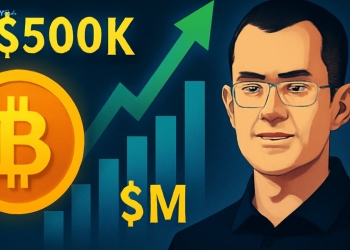The final three months of 2022 saw the German economy contract more strongly than anticipated due to the impact of inflation and the energy crisis on consumer spending and capital investment.
On Friday, the statistics office reported a 0.4% decline in GDP for the quarter, worse than the initial estimate of a 0.2% drop. Preliminary data from the office revealed that in the previous quarter, GDP had grown slightly by 0.5%. With weak consumer confidence, falling manufacturing PMI, and a reluctance to spend, the Ifo’s current assessment component indicates a contraction of the German economy in the first quarter of 2023, according to ING’s global head of macro, Carsten Brzeski.
The fourth quarter’s worse-than-expected outcome increases concerns about a winter recession, which is defined as two consecutive quarters of contraction. Commerzbank economist Ralph Solveen said that the significant rise in energy prices had slowed down the economy despite the government’s extensive aid measures, and a noticeable economic recovery is unlikely to happen due to the global tightening of monetary policy.
According to the statistics office, household spending decreased by 1.0% in the fourth quarter, while government spending increased by 0.6% compared to the previous quarter, following relief measures such as the fuel discount and the 9-euro transport ticket. The statistics office also reported that investment in construction declined by 2.9% in the fourth quarter, and investment in machinery and equipment dropped by 3.6%, adjusted for inflation, seasonal and calendar effects. Due to ongoing supply chain disruptions and high energy prices, the difficult international situation led to a 1.0% decrease in exports of goods and services in the fourth quarter compared to the third quarter, according to the statistics office.
How Is It Calculated?
The quarter values of a country’s economy are calculated based on the Gross Domestic Product (GDP), which is the total value of goods and services produced within the country’s borders during a specific period. To calculate the quarter values, the GDP is measured and compared to the previous quarter.
A contraction in the economy means that the GDP has decreased compared to the previous quarter. This indicates that there has been a decline in economic activity and output. A contraction in the economy for two consecutive quarters is generally considered a technical recession.
A shrinking economy can lead to various economic problems such as rising unemployment, decreased consumer and business confidence, and reduced government revenues. It is important to note that a single quarter of contraction does not necessarily mean that a recession is imminent, as fluctuations in the economy can occur due to a range of factors such as seasonal changes or external shocks.
What the German Economy Can Do to Take Growth Steps
- Increase public investment: Investing in infrastructure projects such as transportation and energy could provide an immediate boost to the economy and create jobs.
- Support innovation and entrepreneurship: Encouraging the development of new businesses and technologies could create new industries and jobs, as well as help existing companies remain competitive in the global market.
- Address demographic challenges: Germany is facing an aging population, which could have negative impacts on the economy. Encouraging immigration and policies that support families could help address these challenges.
- Reform the tax system: Simplifying the tax system and reducing the tax burden on businesses and individuals could stimulate economic growth.
- Address the skills gap: Investing in education and training could help address the skills gap that exists in some sectors of the German economy, particularly in the fields of science, technology, engineering, and math (STEM).
- Address climate change: Germany has been a leader in addressing climate change, but more action is needed to transition to a low-carbon economy. Investing in renewable energy and promoting sustainable practices could create new industries and jobs while reducing greenhouse gas emissions.
Overall, a combination of short-term and long-term policies will be necessary to address the challenges facing the German economy and support sustainable economic growth.
You may be interested in: Bloomberg Notes Anomalies In Borsa Istanbul Analysis































































































![BitTorrent [New]](https://s2.coinmarketcap.com/static/img/coins/64x64/16086.png)














